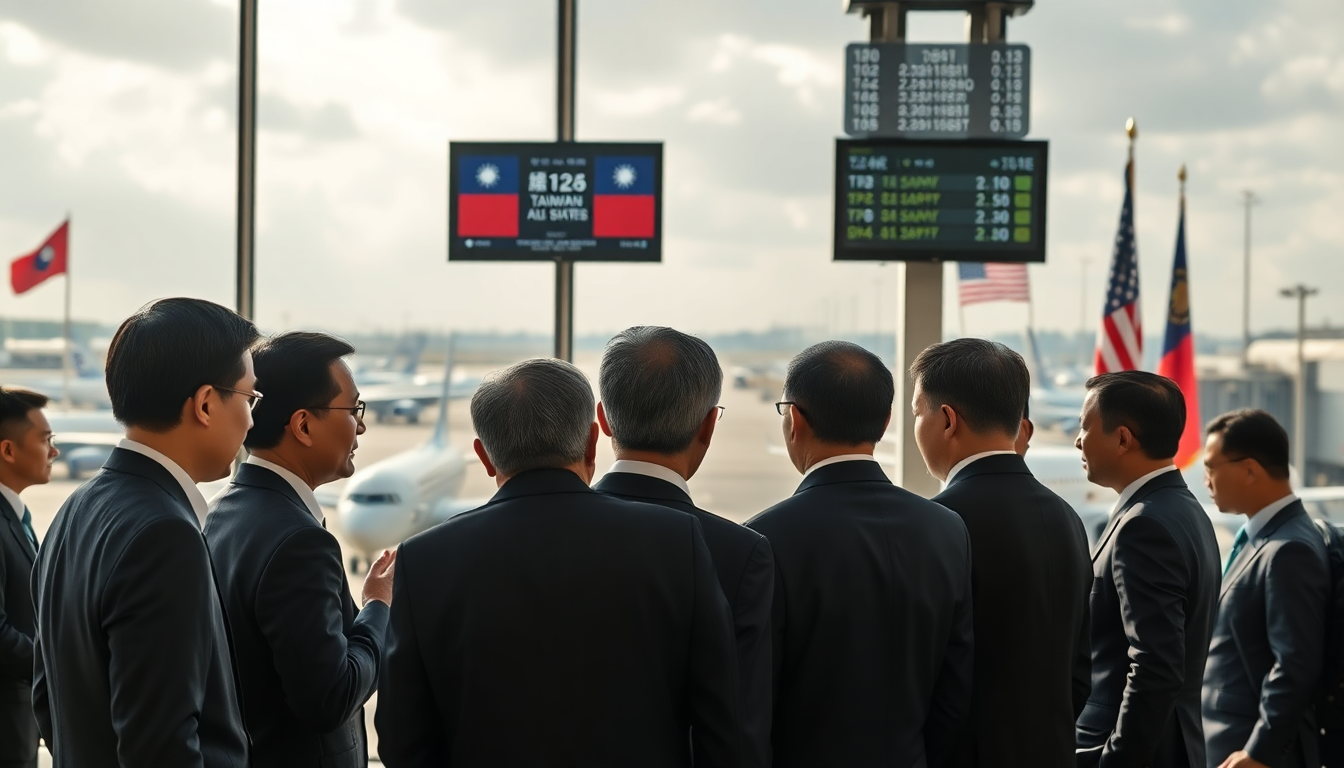Table of Contents
In recent weeks, the political scene took an unexpected turn when Taiwanese President William Lai Ching-te decided to scrap his planned trip to Central and South America. Why the sudden change? Well, it appears that former US President Donald Trump weighed in, expressing opposition to a planned stopover in New York. With rising tensions between the US and China, this diplomatic shift is sending ripples throughout the geopolitical landscape.
What Led to the Cancelled Trip?
President Lai had a busy itinerary lined up, including visits to Paraguay, Guatemala, and Belize, with stops in New York and Dallas. However, US officials made it clear that the New York stop was a no-go, leading to the abrupt cancellation of the trip. This situation underscores how tricky Taiwan’s international relations can be, especially considering the US’s unique stance of not formally recognizing the Taiwanese government. Interestingly, past Taiwanese leaders have leveraged transit stops in the US for important diplomatic conversations.
Take, for example, former President Tsai Ing-wen, who successfully navigated stopovers in both New York and Los Angeles in 2023. Her journey shows that these kinds of visits are doable, even in the face of non-recognition. Yet, the military exercises in the Taiwan Strait that followed Tsai’s US stop highlight just how sensitive and precarious Taiwan’s diplomatic engagements are. This backdrop amplifies the significance of Trump’s reported influence on Lai’s travel plans.
The Bigger Picture: Geopolitical Implications
This cancellation comes at a time when Trump is hinting at a potential visit to China, though he insists he’s not looking for a formal summit with Chinese President Xi Jinping. His comments on Truth Social reflect the tangled web of US-China relations, especially amid ongoing trade negotiations that have become increasingly fraught in recent months.
With US and Chinese officials currently in discussions in Stockholm aimed at resolving tariff disputes, the atmosphere is anything but stable. The outcomes of these talks will likely shape how Taiwan, the US, and China engage with one another moving forward. The tariff war initiated by Trump earlier this year complicates Taiwan’s ability to juggle its international relationships effectively.
What Lies Ahead for Taiwan’s International Relations?
Given the current climate, strategic planning is crucial for Taiwan as it aims to maintain its presence on the global stage. The cancellation of Lai’s trip serves as a stark reminder of the complex and often volatile nature of international politics, particularly for countries like Taiwan, which find themselves in a diplomatic grey area.
As Taiwan navigates these challenges, the focus will likely remain on finding ways to engage without escalating tensions with China. Securing meaningful international dialogues while managing relationships with both the US and China will be key to Taiwan’s future positioning in this intricate geopolitical chess game.


